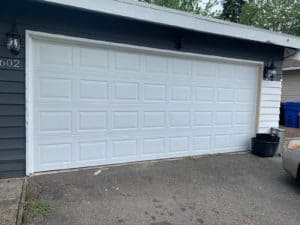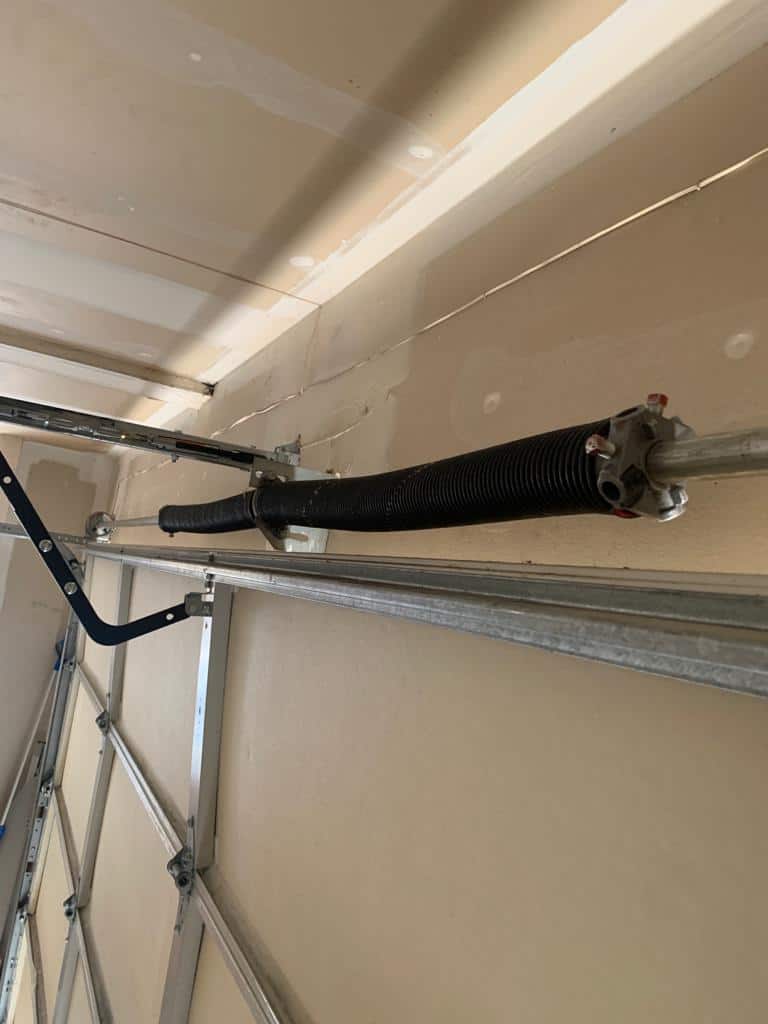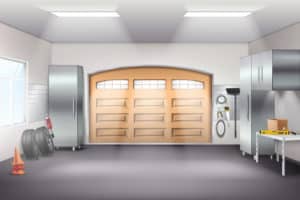
What you Need To Know About Garage Door Installation
Garage Door Installation Garage doors are an important aspect of the home in terms of security and convenience. They provide you with an easy way
Springs are a key component of automatic garage doors. They form an essential element of the door’s opening mechanism, essentially acting as a force against gravity to lift the heavy door panel upwards and open it. Of course the springs alone do not do this; they form part of an integrated torsion unit, which involves cables and a complete roller and tracking mechanism. Different styles of doors differ slightly in how they function and operate; but some features are universal in most automatic doors.
Many garage doors incorporate two types of springs as part of their opening mechanism – torsion and extension springs. Torsion springs are situated horizontally above the garage door and function to ensure the door’s weight is evenly distributed for both stability and safety purposes. Extension springs, by contrast, are a counterbalance feature of garage doors, ensuring the door can be lifted upwards and opened against the downward force of gravity. Without these springs, our doors would simply be too heavy to open.
Most springs are made from oil-tempered wire, though some may be galvanised. They may also be coated or painted for extra protection. Those tempered with oil are dark in appearance, and may also be greasy due to the oil; however they tend to offer a high quality and long-lasting performance. Some people, however, prefer to maintain the standard metallic look; this is possible with galvanised springs, which are coated with zinc as opposed to involving carbon and oils.
Additional coatings may help to protect your door’s springs from damage. For example, powder coatings absorb moisture, thereby reducing the risk of rust. Furthermore, the powder maintains the traditional metallic spring appearance, which is often favoured in modern households.
Springs are coiled metal units that, inevitably, have a limited lifespan. This is influenced by how often you use your garage – whether you access it several times a day, or just now and then during the week. If we consider 1 cycle as a complete open and close circuit of your door, each spring has an average lifespan of 10,000 cycles. As well as frequency of use, this lifespan is also influenced by how well you look after and maintain your door and its components.
Being such a key element of your door, it is important to check your springs regularly and ensure they are performing well. Key things to look out for include rust, which may occur if the garage is particularly damp or moist; over-extended springs – i.e. that have not coiled back properly; and minimal lubrication, which is particularly important and very easy to keep on top of yourself.
Lubricant materials are readily available (e.g. oil / grease) and it is important that these are applied to all moving aspects of the garage door mechanism, including the springs. Without sufficient lubrication, the door’s mechanism will cease to function optimally, likely leading to stiff, jolty and potentially noisy movement.
It is possible to buy springs with an extended lifespan. These are generally made of slightly more durable material, meaning they should survive more cycles than the standard springs. However, unless you really are accessing your garage all of the time (i.e. opening and closing the door very frequently), standard springs should be suitable for most households. The longer life springs may differ, for example, in size and diameter – e.g. thicker wires and larger coils (i.e. a bigger diameter) will help to reduce tension and pressure as the door is lifted.
The more frequently you check your garage door, the more familiar you will be with its regular function and so the sooner you will notice if anything goes wrong. As soon as you detect something askew, please get in touch with us immediately – the sooner the better, so that we can address the problem before it develops into something more serious (and more expensive to repair). Often minor repair works are sufficient to realign a faulty door, thus causing minimal disruption to you at home.

Garage doors range from 7 to 8 feet. For a 7 feet garage door we will use a 25 inches spring. For an 8 feet door we will use a 27 inches spring. It is recommended to measure the doors with a tool for measuring distances that can be purchased at any tool shop.
If the springs are too strong, it is recommended to twist the number of turns.
Should last up to 10,000 cycles of opening and closing the garage door.

Garage Door Installation Garage doors are an important aspect of the home in terms of security and convenience. They provide you with an easy way

Garage door maintenance Modern, automated garage doors look very much the part in most households today. Smart, sleek and somewhat smooth in operation, they provide

Garage Door Pricing If you’re a homeowner looking for a new garage door installed or to replace an old one, it’s worth keeping in mind